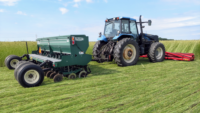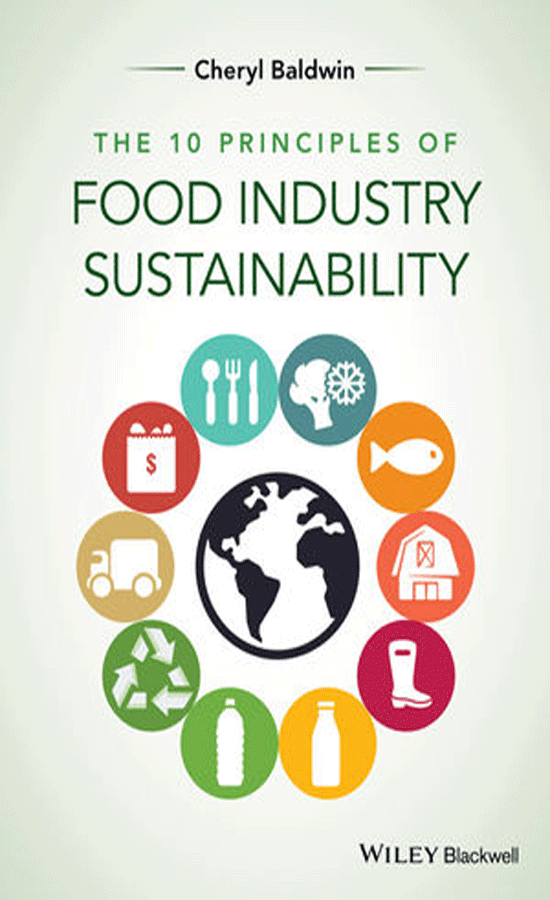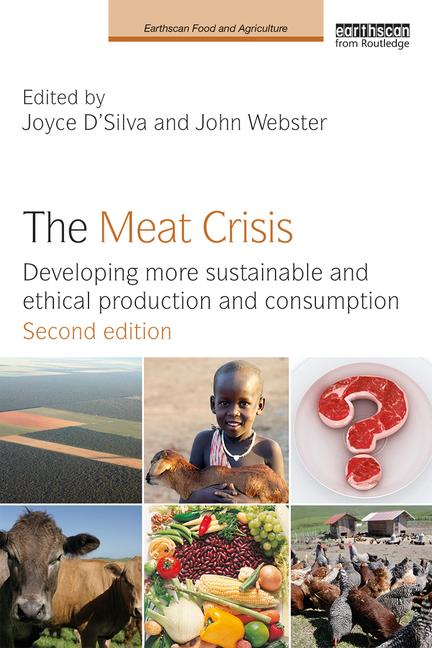The world’s human population is growing while its resource base declines. This sobering statement drew food industry leaders to gather last week for the Niman Ranch Sustainable Agriculture Short Course education program at Colorado State University in Fort Collins, Colo. This is the fourth in a series of educational programs hosted by the thought-leader to explore sustainable agriculture and solutions.
The goal of this intensive two-day program was to engage industry trailblazers to think about sustainable agriculture and to gain a better understanding of the practices which impact the land, water, air, animal welfare and farmer economics. Attendees left with a deeper knowledge of sustainability and began formulating how their businesses can take steps to improve the land, animal welfare and producer profitability for the future.
“Sustainability is about more than just the environment,” stated Jeff Tripician, Niman Ranch chief marketing officer and EVP. “It must encompass not only how we treat the environment but also the treatment of livestock and the farmers who raise the livestock and manage the land. Our goal is to understand how each of these issues interact and impact our business so we can balance the needs we have today with the needs of future generations.”
The Niman Ranch Sustainable Agriculture Short Course was originally designed as a continuing education for Niman Ranch employees. But after interest from its customers and industry partners, the program expanded to include industry leaders from Chipotle Mexican Grill, Whole Foods Market, Sprouts, Shake Shack, Burgermeister, Edible Communities Publications, Chefs Collaborative and numerous other retailers and chefs.
“Sustainability, especially in relationship to farming and agriculture, is a complicated issue that needs to be looked at in a holistic way which encompasses every aspect of our food system, quite literally, from the ground up,” stated Tracey Ryder, CEO Edible Communities Publications. “Niman Ranch is one of those rare companies which goes beyond talking the talk. They are courageous in its efforts to dig deeply into issues and to examine them from all angles. This short course was a perfect example of showing the lengths it is willing to go to ensure a more stable and resilient future for each stakeholder along the food chain.”
The masters level curriculum was developed by Dr. Kraig Peel, director of the CSU Western Center for Integrated Resource Management, in an effort to introduce the impacts of agriculture on sustainability by addressing topics ranging from ecosystem function, soil health, water cycle and livestock raising practices to economic impacts and strategies.
“Our goal was to develop a comprehensive program to look at agricultural sustainability beginning with the land and concluding with the production of a high quality protein product,” stated Dr. Peel. “We studied the soil, ecosystems and animal production systems, all of which impact sustainability. We concluded the program by looking closely at economic sustainability.”
The intensive two day course included lectures by Dr. Robert Woodmansee, Dr. Jason Bruemmer, Dr. Kraig Peel and Dr. Jay Parsons; and hands on instruction in the soil labs and CSU Agricultural Research, Development and Educational Center. In preparation for the event, each attendee read Resilience Thinking: Sustaining Ecosystems and People in a Changing World; Brian Walker and David Salt, and numerous handouts. The conclusion of the program included the use of the Risk Navigator simulator. The program allows the user to make simulated production decisions and to see the impacts of those decisions very quickly on the ecosystem, animals and ultimately the bottom line.
The short course is part of Niman Ranch’s ongoing effort to understand the complexity of sustainable agriculture, its current practices and the practices it should implement for the future. Over the past 18 months, the company has hosted three other programs:
August 2011: Sustainability Panel of nine industry experts moderated by Dr. Fred Kirshenmann, Distinguished Fellow at the Leopold Center for Sustainable Agriculture.
April 2012: Environmental Impact of Grain-Fed versus Grass-Fed Beef presentation at Boise State University by Dr. Judith L. Capper.
September 2012: Presentations by Dr. Kraig Peel, Director of the CSU Western Center for Integrated Resource Management, on traditional livestock production and Jon Scholl, Executive Director American Farmland Trust, on the disappearing farmland.
Niman Ranch will host its fifth program in conjunction with the 15th Annual Hog Farmer Appreciation Dinner in Des Moines, Iowa, August 2013.
Source: Niman Ranch








